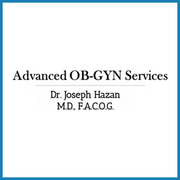
During pregnancy, one of the most important checks performed at each prenatal care visit is a simple blood pressure test. Though high blood pressure can lead to complications, it can also be managed with the help of an experienced OB-GYN. Here’s what you should know if you’re navigating this health issue or preparing yourself for a healthy pregnancy.
What Are the Risks of High Blood Pressure During Pregnancy?
High blood pressure occurs when blood volume creates higher than usual pressure against the walls of the arteries. This causes the heart to work harder to pump blood throughout the body and may damage blood vessels. In pregnancy, these damaged or narrowed blood vessels may decrease blood flow to the placenta, preventing the fetus from receiving essential nutrients.
Preeclampsia is another pregnancy condition that can be caused by high blood pressure. This condition often occurs when high blood pressure causes damage to blood vessels in the placenta; the placenta may even separate from the uterine wall. Preeclampsia increases the risk of premature delivery, which can lead to breathing or sight issues for babies.
What Are the Types of High Blood Pressure?

The exact risks and treatment options for pregnant women with high blood pressure depend on the severity and timing. Chronic hypertension generally develops before or early in pregnancy and may be unrelated to the placenta.
However, gestational hypertension occurs when a birthing person develops high blood pressure after 20 weeks. Preeclampsia also occurs after 20 weeks, but it is accompanied by protein in the urine, which can indicate damage to organs like the kidneys or liver.
How Can It Be Managed?
Treatment options also vary according to what type of high blood pressure the patient is experiencing. Avoiding high-sodium foods and getting mild to moderate exercise often benefit those with chronic hypertension. These tips can also help those with gestational hypertension, but doctors may also recommend monitoring these patients even more closely to look for signs of preeclampsia.
For those with preeclampsia, early delivery is often recommended to prevent serious organ damage. Depending on the baby’s gestational age and other risk factors, it may be beneficial to monitor blood pressure closely and administer medication to delay delivery as long as possible.
A knowledgeable provider is essential for navigating high blood pressure and other prenatal care. Advanced OB-GYN Services serves families throughout St. Peters and Bridgeton, MO. Dr. Hazan and the team offer personalized prenatal care and thorough testing. Visit the website for a full list of services, or call (314) 291-2140 or (636) 928-1800 for a free consultation.
About the Business
(52 reviews)
Have a question? Ask the experts!
Send your question

